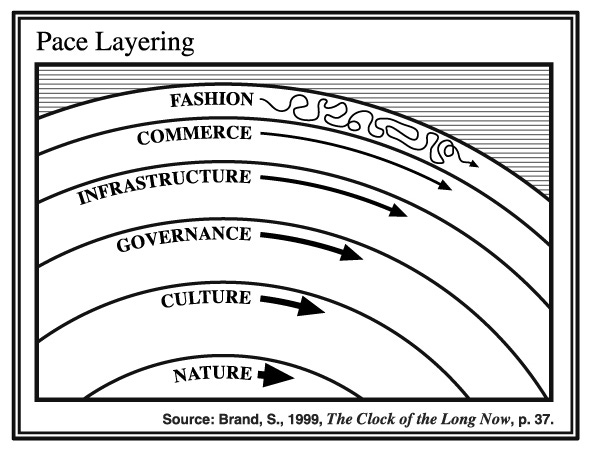I propose six significant levels of pace and size in the working structure of a robust and adaptable civilization. From fast to slow the levels are: - Fashion/art - Commerce- Infrastructure- Governance- Culture- Nature
Stewart Brand • Pace Layering: How Complex Systems Learn and Keep Learning
From the fastest layers to the slowest layers in the system, the relationship can be described as follows:
Fast learns, slow remembers. Fast proposes, slow disposes. Fast is discontinuous, slow is continuous. Fast and small instructs slow and big by accrued innovation and by occasional revolution. Slow and big controls small and fast by constraint... See more
Fast learns, slow remembers. Fast proposes, slow disposes. Fast is discontinuous, slow is continuous. Fast and small instructs slow and big by accrued innovation and by occasional revolution. Slow and big controls small and fast by constraint... See more
Stewart Brand • Pace Layering: How Complex Systems Learn and Keep Learning
Take a coniferous forest. The hierarchy in scale of pine needle, tree crown, patch, stand, whole forest, and biome is also a time hierarchy. The needle changes within a year, the crown over several years, the patch over many decades, the stand over a couple of centuries, the forest over a thousand years, and the biome over ten thousand years. The... See more
